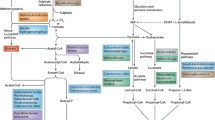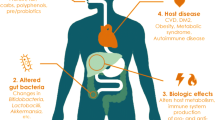Abstract
Recent reports suggest that obesity is caused by dysbiosis of gut microbiota and that it could be prevented or treated through improvement in the composition and diversity of gut microbiota. In this study, high-fat diet (HFD)-induced obese mice were orally administered with Lactobacillus plantarum K50 (K50) isolated from kimchi and Lactobacillus rhamnosus GG (LGG) as a positive control for 12 weeks. Body weight and weights of epididymal, mesenteric, and subcutaneous adipose tissues and the liver were significantly reduced in K50-treated HFD-fed mice compared with HFD-fed mice. The serum triglyceride level was decreased and high-density lipoprotein cholesterol level was increased in K50-treated HFD-fed mice. The gut microbiota analysis showed that the L. plantarum K50 treatment reduced the Firmicutes/Bacteroidetes ratio and improved the gut microbiota composition. In addition, the level of total short-chain fatty acids (SCFAs) in K50-treated HFD-fed mice was higher than that in HFD-fed mice. A remarkable reduction in the fat content of adipose tissue and liver was also observed in K50-treated HFD-fed mice, accompanied by improvements in gene expression related to lipid metabolism, adipogenesis, and SCFA receptors. K50-treated mice had downregulated expression levels of genes and proteins such as TNFα and IL-1β. Our findings confirm that L. plantarum K50 could be a good candidate for ameliorating fat accumulation and low-grade inflammation in metabolic tissues through gut microbiota improvement.
Key points
• Lactobacillus plantarum and L. rhamnosus GG were fed to HFD-induced obese mice.
• L. plantarum K50 had dramatic ameliorating effects on obesity and related diseases.
• These effects may be associated with the restoration of gut microbiota dysbiosis.





Similar content being viewed by others
Data availability
The datasets generated during and/or analyzed during the current study are available in NCBI’s SRA and are accessible through accession number SRR12334249 (https://www.ncbi.nlm.nih.gov/sra/SRR12334249) and are included in this published article and its supplementary information file.
References
Aoki R, Kamikado K, Suda W, Takii H, Mikami Y, Suganuma N, Hattori M, Koga Y (2017) A proliferative probiotic Bifidobacterium strain in the gut ameliorates progression of metabolic disorders via microbiota modulation and acetate elevation. Scientific reports 7:43522. https://doi.org/10.1038/srep43522
Asghar A, Sheikh N (2017) Role of immune cells in obesity induced low grade inflammation and insulin resistance. Cell Immunol 315:18–26. https://doi.org/10.1016/j.cellimm.2017.03.001
Assimakopoulos SF, Triantos C, Maroulis I, Gogos C (2018) The role of the gut barrier function in health and disease. Gastroenterology Res 11(4):261–263. https://doi.org/10.14740/gr1053w
Baenke F, Peck B, Miess H, Schulze A (2013) Hooked on fat: the role of lipid synthesis in cancer metabolism and tumour development. Dis Model Mech 6(6):1353–1363. https://doi.org/10.1242/dmm.011338
Bartley A, Yang T, Arocha R, Malphurs WL, Larkin R, Magee KL, Vickroy TW, Zubcevic J (2018) Increased abundance of Lactobacillales in the colon of beta-adrenergic receptor knockout mouse is associated with increased gut bacterial production of short chain fatty acids and reduced IL17 expression in circulating CD4(+) immune cells. Front Physiol 9:1593. https://doi.org/10.3389/fphys.2018.01593
Binder HJ (2010) Role of colonic short-chain fatty acid transport in diarrhea. Annu Rev Physiol 72:297–313. https://doi.org/10.1146/annurev-physiol-021909-135817
Bischoff SC, Barbara G, Buurman W, Ockhuizen T, Schulzke JD, Serino M, Tilg H, Watson A, Wells JM (2014) Intestinal permeability--a new target for disease prevention and therapy. BMC Gastroenterol 14:189. https://doi.org/10.1186/s12876-014-0189-7
Cani PD (2019) Microbiota and metabolites in metabolic diseases. Nature reviews Endocrinology 15(2):69–70. https://doi.org/10.1038/s41574-018-0143-9
Cheng YC, Liu JR (2020) Effect of Lactobacillus rhamnosus GG on energy metabolism, leptin resistance, and gut microbiota in mice with diet-induced obesity. Nutrients 12(9). https://doi.org/10.3390/nu12092557
Derosa G, Maffioli P (2012) Anti-obesity drugs: a review about their effects and their safety. Expert Opin Drug Saf 11(3):459–471. https://doi.org/10.1517/14740338.2012.675326
Ellulu MS, Patimah I, Khaza'ai H, Rahmat A, Abed Y (2017) Obesity and inflammation: the linking mechanism and the complications. Arch Med Sci 13(4):851–863. https://doi.org/10.5114/aoms.2016.58928
Engin A (2017a) The definition and prevalence of obesity and metabolic syndrome. Adv Exp Med Biol 960:1–17. https://doi.org/10.1007/978-3-319-48382-5_1
Engin AB (2017b) Adipocyte-macrophage cross-talk in obesity. Adv Exp Med Biol 960:327–343. https://doi.org/10.1007/978-3-319-48382-5_14
Fleissner CK, Huebel N, Abd El-Bary MM, Loh G, Klaus S, Blaut M (2010) Absence of intestinal microbiota does not protect mice from diet-induced obesity. Br J Nutr 104(6):919–929. https://doi.org/10.1017/s0007114510001303
Gérard P (2016) Gut microbiota and obesity. Cell Mol Life Sci 73(1):147–162. https://doi.org/10.1007/s00018-015-2061-5
Ge H, Li X, Weiszmann J, Wang P, Baribault H, Chen JL, Tian H, Li Y (2008) Activation of G protein-coupled receptor 43 in adipocytes leads to inhibition of lipolysis and suppression of plasma free fatty acids. Endocrinology 149(9):4519–4526. https://doi.org/10.1210/en.2008-0059
Gibson GR, Hutkins R, Sanders ME, Prescott SL, Reimer RA, Salminen SJ, Scott K, Stanton C, Swanson KS, Cani PD, Verbeke K, Reid G (2017) Expert consensus document: The International Scientific Association for Probiotics and Prebiotics (ISAPP) consensus statement on the definition and scope of prebiotics. Nat Rev Gastroenterol Hepatol 14(8):491–502. https://doi.org/10.1038/nrgastro.2017.75
Hand TW, Vujkovic-Cvijin I, Ridaura VK, Belkaid Y (2016) Linking the microbiota, chronic disease, and the immune system. Trends Endocrinol Metab 27(12):831–843. https://doi.org/10.1016/j.tem.2016.08.003
Järbrink-Sehgal E, Andreasson A (2020) The gut microbiota and mental health in adults. Curr Opin Neurobiol 62:102–114. https://doi.org/10.1016/j.conb.2020.01.016
Ji Y, Park S, Park H, Hwang E, Shin H, Pot B, Holzapfel WH (2018) Modulation of active gut microbiota by Lactobacillus rhamnosus GG in a diet induced obesity murine model. Front Microbiol 9:710. https://doi.org/10.3389/fmicb.2018.00710
Karczewski J, Śledzińska E, Baturo A, Jończyk I, Maleszko A, Samborski P, Begier-Krasińska B, Dobrowolska A (2018) Obesity and inflammation. Eur Cytokine Netw 29(3):83–94. https://doi.org/10.1684/ecn.2018.0415
Kataoka K (2016) The intestinal microbiota and its role in human health and disease. J Med Invest 63(1-2):27–37. https://doi.org/10.2152/jmi.63.27
Kim B, Park KY, Ji Y, Park S, Holzapfel W, Hyun CK (2016) Protective effects of Lactobacillus rhamnosus GG against dyslipidemia in high-fat diet-induced obese mice. Biochem Biophys Res Commun 473(2):530–536. https://doi.org/10.1016/j.bbrc.2016.03.107
Kim S, Huang E, Park S, Holzapfel W, Lim SD (2018) Physiological characteristics and anti-obesity effect of Lactobacillus plantarum K10. Korean J Food Sci Anim Resour 38(3):554–569. https://doi.org/10.5851/kosfa.2018.38.3.554
Kim SJ, Kim SE, Kim AR, Kang S, Park MY, Sung MK (2019) Dietary fat intake and age modulate the composition of the gut microbiota and colonic inflammation in C57BL/6 J mice. 19(1):193 https://doi.org/10.1186/s12866-019-1557-9
Kim SW, Park KY, Kim B, Kim E, Hyun CK (2013) Lactobacillus rhamnosus GG improves insulin sensitivity and reduces adiposity in high-fat diet-fed mice through enhancement of adiponectin production. Biochem Biophys Res Commun 431(2):258–263. https://doi.org/10.1016/j.bbrc.2012.12.121
Koboldt DC, Steinberg KM, Larson DE, Wilson RK, Mardis ER (2013) The next-generation sequencing revolution and its impact on genomics. Cell 155(1):27–38. https://doi.org/10.1016/j.cell.2013.09.006
Kondo T, Kishi M, Fushimi T, Kaga T (2009) Acetic acid upregulates the expression of genes for fatty acid oxidation enzymes in liver to suppress body fat accumulation. J Agric Food Chem 57(13):5982–5986. https://doi.org/10.1021/jf900470c
Le Barz M, Anhê FF, Varin TV, Desjardins Y, Levy E, Roy D, Urdaci MC, Marette A (2015) Probiotics as complementary treatment for metabolic disorders. Diabetes Metab J 39(4):291–303. https://doi.org/10.4093/dmj.2015.39.4.291
Lecomte V, Kaakoush NO, Maloney CA, Raipuria M, Huinao KD, Mitchell HM, Morris MJ (2015) Changes in gut microbiota in rats fed a high fat diet correlate with obesity-associated metabolic parameters. PLoS One 10(5):e0126931. https://doi.org/10.1371/journal.pone.0126931
Lee B, Moon KM (2018) Tight junction in the intestinal epithelium: its association with diseases and regulation by phytochemicals. 2018:2645465 https://doi.org/10.1155/2018/2645465
Ley RE, Turnbaugh PJ, Klein S, Gordon JI (2006) Microbial ecology: human gut microbes associated with obesity. Nature 444(7122):1022–1023. https://doi.org/10.1038/4441022a
Lin HV, Frassetto A, Kowalik EJ Jr, Nawrocki AR, Lu MM, Kosinski JR, Hubert JA, Szeto D, Yao X, Forrest G, Marsh DJ (2012) Butyrate and propionate protect against diet-induced obesity and regulate gut hormones via free fatty acid receptor 3-independent mechanisms. PLoS One 7(4):e35240. https://doi.org/10.1371/journal.pone.0035240
Liu Q, Liu Y, Li F, Gu Z, Liu M, Shao T, Zhang L, Zhou G, Pan C, He L, Cai J, Zhang X, Barve S, McClain CJ, Chen Y, Feng W (2020) Probiotic culture supernatant improves metabolic function through FGF21-adiponectin pathway in mice. J Nutr Biochem 75:108256. https://doi.org/10.1016/j.jnutbio.2019.108256
Markowiak-Kopeć P, Śliżewska K (2020) The effect of probiotics on the production of short-chain fatty acids by human intestinal microbiome. Nutrients 12(4). https://doi.org/10.3390/nu12041107
Maslowski KM, Vieira AT, Ng A, Kranich J, Sierro F, Yu D, Schilter HC, Rolph MS, Mackay F, Artis D, Xavier RJ, Teixeira MM, Mackay CR (2009) Regulation of inflammatory responses by gut microbiota and chemoattractant receptor GPR43. Nature 461(7268):1282–1286. https://doi.org/10.1038/nature08530
Nagpal R, Wang S, Ahmadi S, Hayes J, Gagliano J, Subashchandrabose S, Kitzman DW, Becton T, Read R, Yadav H (2018) Human-origin probiotic cocktail increases short-chain fatty acid production via modulation of mice and human gut microbiome. 8(1):12649 https://doi.org/10.1038/s41598-018-30114-4
Nishida A, Inoue R, Inatomi O, Bamba S, Naito Y, Andoh A (2018) Gut microbiota in the pathogenesis of inflammatory bowel disease. Clin J Gastroenterol 11(1):1-10 doi:https://doi.org/10.1007/s12328-017-0813-5, 1
Paramjit STBR, Naranjan SD (2020) Pathophysiology of obesity-induced health complications. Springer Nature, Berlin
Pascale A, Marchesi N, Marelli C, Coppola A, Luzi L, Govoni S, Giustina A, Gazzaruso C (2018) Microbiota and metabolic diseases. 61(3):357-371. https://doi.org/10.1007/s12020-018-1605-5
Ríos-Covián D, Ruas-Madiedo P, Margolles A, Gueimonde M, de Los Reyes-Gavilán CG, Salazar N (2016) Intestinal short chain fatty acids and their link with diet and human health. Front Microbiol 7:185. https://doi.org/10.3389/fmicb.2016.00185
Rao RK, Samak G (2013) Protection and restitution of gut barrier by probiotics: nutritional and clinical implications. Curr Nutr Food Sci 9(2):99–107. https://doi.org/10.2174/1573401311309020004
Tang Y, Chen Y, Jiang H, Robbins GT, Nie D (2011) G protein-coupled receptor for short-chain fatty acids suppresses colon cancer. Int J Cancer 128(4):847–856. https://doi.org/10.1002/ijc.25638
Thursby E, Juge N (2017) Introduction to the human gut microbiota. Biochem J 474(11):1823–1836. https://doi.org/10.1042/bcj20160510
Turnbaugh PJ, Hamady M, Yatsunenko T, Cantarel BL, Duncan A, Ley RE, Sogin ML, Jones WJ, Roe BA, Affourtit JP, Egholm M, Henrissat B, Heath AC, Knight R, Gordon JI (2009a) A core gut microbiome in obese and lean twins. Nature 457(7228):480–484. https://doi.org/10.1038/nature07540
Turnbaugh PJ, Ridaura VK, Faith JJ, Rey FE, Knight R, Gordon JI (2009b) The effect of diet on the human gut microbiome: a metagenomic analysis in humanized gnotobiotic mice. Sci Transl Med 1(6):6ra14. https://doi.org/10.1126/scitranslmed.3000322
Wong JM, de Souza R, Kendall CW, Emam A, Jenkins DJ (2006) Colonic health: fermentation and short chain fatty acids. J Clin Gastroenterol 40(3):235–243. https://doi.org/10.1097/00004836-200603000-00015
Xu H, Wang J, Cai J, Feng W, Wang Y, Liu Q, Cai L (2019) Protective effect of Lactobacillus rhamnosus GG and its supernatant against myocardial dysfunction in obese mice exposed to intermittent hypoxia is associated with the activation of Nrf2 pathway. Int J Biol Sci 15(11):2471–2483. https://doi.org/10.7150/ijbs.36465
Zhao C, Liu L, Liu Q, Li F, Zhang L, Zhu F, Shao T, Barve S, Chen Y, Li X, McClain CJ, Feng W (2019) Fibroblast growth factor 21 is required for the therapeutic effects of Lactobacillus rhamnosus GG against fructose-induced fatty liver in mice. Mol Metab 29:145–157. https://doi.org/10.1016/j.molmet.2019.08.020
Funding
This research was supported by the Korea Institute of Planning and Evaluation for Technology in Food, Agriculture, Forestry and Fisheries (IPET) through the Technology Commercialization Support Program, funded by Ministry of Agriculture, Food and Rural Affairs (MAFRA) (Grant Number: 818028-2).
Author information
Authors and Affiliations
Contributions
HCJ and JRC designed the experiments and analyzed mRNA, protein, and gut microbiota. HCJ, JRC, BKK, and TSP wrote the manuscript. BKK, ISC, and WSK contributed to the experiments. All authors contributed to manuscript revision, reading, and approval of the submitted version.
Corresponding author
Ethics declarations
Conflict of interest
The authors declare that they have no conflict of interest.
Ethical statements
This article does not contain any studies with human participants. All applicable international, national, and/or institutional guidelines for the care and use of animals were followed.
Additional information
Publisher’s note
Springer Nature remains neutral with regard to jurisdictional claims in published maps and institutional affiliations.
Supplementary Information
ESM 1
(PDF 223 kb)
Rights and permissions
About this article
Cite this article
Joung, H., Chu, J., Kim, BK. et al. Probiotics ameliorate chronic low-grade inflammation and fat accumulation with gut microbiota composition change in diet-induced obese mice models. Appl Microbiol Biotechnol 105, 1203–1213 (2021). https://doi.org/10.1007/s00253-020-11060-6
Received:
Revised:
Accepted:
Published:
Issue Date:
DOI: https://doi.org/10.1007/s00253-020-11060-6




